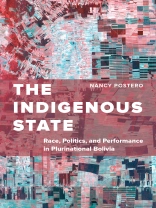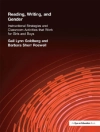A free ebook version of this title is available through Luminos, University of California Press’s Open Access publishing program. Visit www.luminosoa.org to learn more.
In 2005, Bolivians elected their first indigenous president, Evo Morales. Ushering in a new “democratic cultural revolution, ” Morales promised to overturn neoliberalism and inaugurate a new decolonized society. In this perceptive new book, Nancy Postero examines the successes and failures that have followed in the ten years since Morales’s election. While the Morales government has made many changes that have benefited Bolivia’s majority indigenous population, it has also consolidated power and reinforced extractivist development models. In the process, indigeneity has been transformed from a site of emancipatory politics to a site of liberal nation-state building. By carefully tracing the political origins and practices of decolonization among activists, government administrators, and ordinary citizens, Postero makes an important contribution to our understanding of the meaning and impact of Bolivia’s indigenous state.
Jadual kandungan
List of Figures
Acknowledgments
Introduction: The “Cultural Democratic Revolution” of Evo Morales
Part One. Refounding the State
1. The Emergence of Indigenous Nationalism in Bolivia: Social Movements and the MAS State
2. The Constituent Assembly: Challenges to Liberalism
3. Wedding the Nation: Spectacle and Political Performance
Part Two. Development and Decolonization
4. Living Well? The Battle for National Development
5. Race and Racism in the New Bolivia
6. From Indigeneity to Economic Liberation
7. Charagua’s Struggle for Indigenous Autonomy
Conclusion: Between Politics and Policing
Notes
Credits for Previously Published Materials
References
Index
Mengenai Pengarang
Nancy Postero is Associate Professor of Anthropology at the University of California, San Diego. She is the author of Now We Are Citizens: Indigenous Politics in Post-Multicultural Bolivia.












